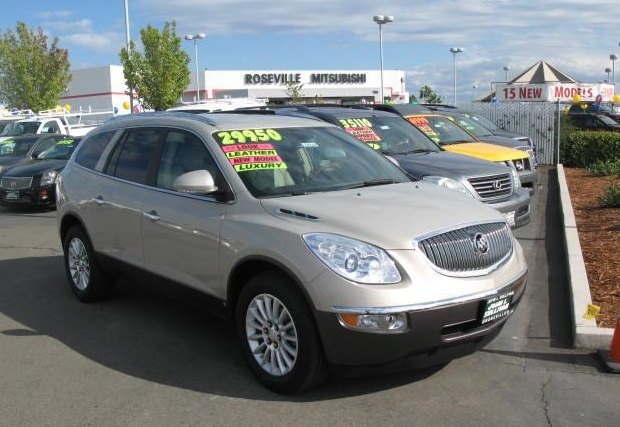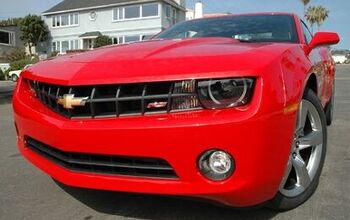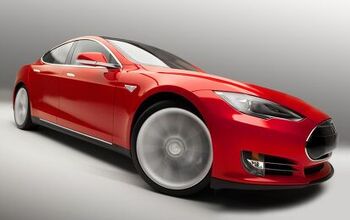Editorial: The Truth About Car Dealer Franchise Laws
As a man with his finger on the pulse of the autoblogosphere, I can report that there’s a groundswell of critical coverage of The Big 2.8’s credibility. TTAC is no longer a lone voice. Questions are being asked. Issues raised. One of the most critical: why can’t Chrysler, GM and Ford just ditch their unwanted brands? Answer: state-by-state dealer franchise laws that heavily favor the dealers—thanks to their political clout. The Big 2.8 can’t live with ’em, they can’t afford to live without ’em. The Colorado Statesman’s Jerry Kopel does some deep diving into this devilish dilemma and provides some important insights on this life-or-death (well, C11 anyway) issue.
Car dealers are “local,” known politically to legislators both in Colorado and other states. Whatever Lola wants, Lola gets. The same is true for locals, especially fundraising and fund-giving locals. In 1937, Colorado was among the first states to start interfering in arrangements between dealers and manufacturers. It is still on the books as CRS 112-6-201 to 213, the Antimonopoly Financing law. In 72 years, just one section has been amended.
Inactions have consequences. Here’s the money shot.
“The sale and distribution of motor vehicles affects the public interest and confidence of the purchaser in the retail dealer from whom the purchase is made and the expectancy that such dealer will remain in business to provide service for the motor vehicle purchased.
“Proper motor vehicle service is important to highway safety and
(1) the manufacturers and distributors of motor vehicles have an obligation to the public
(a) not to terminate or refuse to continue their franchise agreements with retail dealers
(b) unless the manufacturer or distributor has first established
(i) good cause for termination or noncontinuance of any such agreement,
The manufacturers have the burden of showing “good cause,” but even if they do, they also have to show “no diminution of locally available service.”
(Note to the drafting office: “Good cause” is not defined in the statute. “Good faith” is.)
As a result, car dealerships have gained territorial monopolies (called geographic areas) from their manufacturers, fending off anyone who might want to muscle in by opening a competing franchise. So if Chrysler merged with Ford, who gets to sell the Chrysler cars? Does territorial integrity mean Chrysler franchises lose out, or that Ford franchises must defend themselves from lawsuits across the country?
And if that’s enough to make it impossible (i.e., extremely expensive) for an automaker to terminate a dealer and be done with it, Colorado is strengthening its laws in anticipation of just such an eventuality.
Romer’s SB 91 is assigned to the Business Affairs Committee. Here’s a sampling of the various amendments in the bill:
1. The manufacturer “who disapproves of a sale or transfer of a franchise shall reimburse the prospective purchaser and seller for any actual costs incurred in attempting to sell or transfer the franchise.”
Which means that there is no down side for the seller or purchaser. Payments must be made for lawyer or accountant fees. No wording has been added requiring “good faith” on the part of the potential purchaser or seller.
2. Temporary ownership of the franchise.
Present law allows the manufacturer two years to make the transition to another dealer. The bill cuts that in half to one year, providing less time to determine the credibility of applicants.
3. Termination of franchises.
Manufacturers with “good cause” are presently out of pocket for payments to the bad franchiser by statute. The Romer bill adds to that: The unused portion of the facility lease costs and “goodwill value.”
In addition, in order to prove “good cause,” manufacturers must submit a great deal of information for termination to occur. The Romer bill sets a time limit of 30 days for the manufacturer to submit that information.
Pragmatically, it would be smarter to pay off a bad franchiser than to try to meet the requirements of Colorado’s car franchise statute.
4. Squeezing the best out of ANY promotion.
A manufacturer, to save one franchise from going under in South Carolina, might offer a unique concept, such as offering trade-ins at no cost to either the dealer or the consumer. Under the Romer bill, the manufacturer would have to make exactly the same offer to each of its franchises in Colorado.
There’s no wiggle room here. A manufacturer operating in Colorado seeking to cull a brand or four or trim a dealer or 50 must either fork-out a fortune to terminate a franchise, slowly starve the dealers to death, convince Uncle Sam to write a law over-riding the state’s franchise regulations or file Chapter 11. Which would eliminate ALL this fancy footwork at a single stroke. Guess which one makes most sense?
More by Robert Farago
Latest Car Reviews
Read moreLatest Product Reviews
Read moreRecent Comments
- VoGhost Interesting comments. Back in reality, AV is already here, and the experience to date has been that AV is far safer than most drivers. But I guess your "news" didn't tell you that, for some reason.
- Doc423 Come try to take it, Pal. Environmental Whacko.
- 28-Cars-Later Mazda despite attractive styling has resale issues - 'Yota is always the answer.
- 28-Cars-Later Try again.
- Doc423 It's a flat turn, not banked, which makes it more difficult to negotiate, especially if you're travelling a little too fast.


































Comments
Join the conversation
There's also the issue of accountability. The D3's dealer network is in such a sorry state because the parent company made it that way. Therefore they should bear responsibility. They also built the network like they built cars, quantity over quality.
Existing private contracts between manufacturers and dealers should be honored, but there is no reason that distribution model needs to be forced on new manufacturers entering the automotive market. My problem with the car dealer franchise laws is they prevent a new brand from rising up and following the Michael Dell model of build to order. Instead, cars get built with the wrong color and an excess of dealer profit adding accessories, sit on parking lots, and eventually sell with price reductions. I understand that the dealer profit on most new car sales isn't enough to keep lights on at the dealership, but why am I forced to bear this unnecessary cost? Why do I have to accept extra features that add little value to me? Just ship the custom built car directly from the manufacturer to me and cut out the middleman.